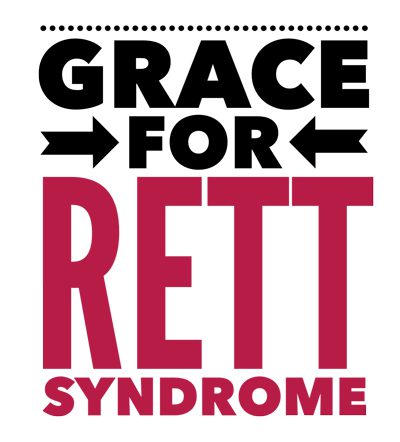Over on our About Rett page, I discuss how Rett syndrome is NOT an intellectual disability (insert middle finger here). Hell, it’s not even a learning disability (not in the traditional sense – more on that later).
RETT SYNDROME IS A PROCESSING DISORDER
The number one most impairing thing about Rett isn’t intellectual impairment (what they used to call “mental retardation”).
IT’S APRAXIA.
Can you believe that? Apraxia! Do you know what that is? It’s one of the -xias (cousin of dyslexia, sister of dyspraxia). Imagine you’re driving (hey, stop texting!) and you turn the wheel left but your car goes right. You switch on the wipers and the volume turns up.
AND WORSE YET?
You hit the gas and NOTHING. HAPPENS. This is Rett syndrome. It’s an inability to order your own body’s movements. Stuff happens (cuz you’re not exactly paralyzed) but it’s not the stuff you’re trying to make happen. Like hand wringing or tremors or weird breathing patterns.
And this is an example of why Grace can’t eat anymore. Slowly, it became harder and harder to order all the movements required to eat. To eat, she has to engage her tongue, throat, jaw and breathing and as her processing ability diminished, so did her ability to do all those things at once.
Definition of apraxia
A (redacted) definition from Wiki:
Apraxia is a motor disorder in which the individual has difficulty with the motor planning to perform tasks
I’m not an expert, but I know a few.
So I asked Rett communication expert Susan Norwell about the role of apraxia in Rett syndrome and here’s what she had to say:
“People with Rett syndrome process auditory and visual info very well unless the are also diagnosed with CVI. They conceptually understand information at an abstract level: get humor, get the “big idea”, are able to read, write and learn new information quickly, are able to do the abstract reasoning to do analogies. None of these things are possible for those with cognitive issues. Apraxia impedes their OUTPUT of information thus making the uninformed think they are cognitively impaired.”
Yaaaas Queen! This is SO GOOD! Susan explains it perfectly there when she says apraxia prevents our kids from getting things OUT and it doesn’t stop information from getting IN. So it would lead “the uninformed” to believe that they’re intellectually disabled, cognitively impaired, mentally retarded (however you prefer to describe that phenomenon).
What about learning disability?
I asked assistive tech expert Hector Minto about whether learning disability is a feature in Rett syndrome and here’s what he had to say:
“It’s difficult to say that Rett is not a learning disability, but eye tracking suggests that the kids have normal attention and understanding. If apraxia stops you in your tracks at a developmental stage of life then it leads to an acquired learning lag. We see the same in some people with muscular dystrophy. It’s purely a muscle condition, but it stops them reading, interacting etc, so that impacts learning.”
I love this explanation for how we can think about learning disability in Rett syndrome. It’s not that the girls CAN’T learn. It’s that this processing disorder can prevent them from accessing the world in a way which promotes a level of learning on par with their peers.
There are many things about living in a Rett body that might cause you to have a hard time engaging in a learning environment. A very simple example is breathing. You may know that breathing abnormalities are a staple in Rett syndrome. Grace’s breathing pattern of choice is breath holding. She holds her breath so long that her oxygen levels drop to the 70s before her body allows her to breathe again. Other kids hyperventilate, swallow air or have shallow breathing.
While it’ll be impossible for you to experience most of the effects of Rett for yourself, this is one you can try right now wherever you’re reading this!
It’s as simple as holding your breath until you almost pass out or hyperventilating until you’re dizzy. Then imagine that you do this once every minute while you’re at work or at school and ask yourself: could I learn this way?
In terms of my daughter Grace, I think about it this way:
You might think someone who doesn’t know the dangers of touching a hot stove or running into oncoming traffic is stupid, unlearned or intellectually disadvantaged. Grace doesn’t know those things. But not because she can’t learn about hot stoves or moving vehicles. It’s just because she’s never had to learn those things due to her disability. There’s a lot Grace will never know about the world. Does she know what color her hair is? I have no idea. Does she know that she has 10 toes? Again…NO IDEA. Does that mean she’s learning disabled? No. If she doesn’t know those things it’s because looking in the mirror isn’t a part of her daily life and, frankly…I’m not so sure we’ve ever told her how many toes she has. Or what toes are. It hasn’t really come up.
But does she know she’s about to have a seizure? Yes. Does she calm down when she sees me filling her feed bag because she knows that’s about to be pumped into her hungry tummy? Yup. Does she know her morning routine and what’s coming next? Yes. Can she anticipate I’m about to take off her shirt and lift her head to help me? Yes. She learned those things because they’re a part of her life. She retains that info and displays that she has learned it.
Now that you know about apraxia, you can become more aware of how it affects your loved one with Rett syndrome and help the professionals in her life to better understand the difference between being cognitively disabled and just having a really hard time with motor planning. In short, Rett syndrome (I imagine) is like living inside a runaway train so be patient and give her a good long time to perform tasks (like saying hello). You’ll be surprised what might happen if you wait for 30 seconds for her to respond!





